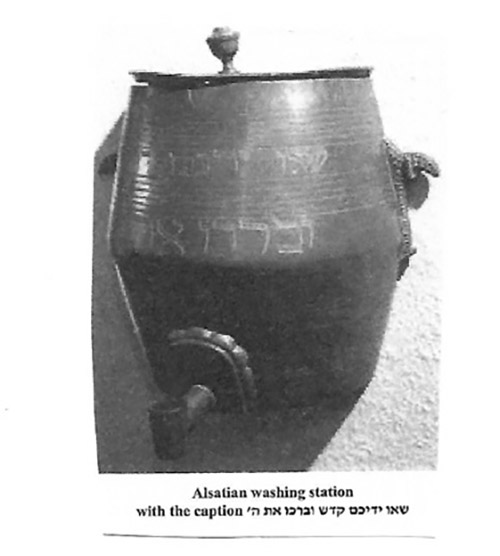
The information in this article is taken, with permission of the book’s author, from “Shorshei Minhag Ashkenaz” by Rabbi Binyomin Shlomo Hamburger. The reader should remember that any opinions stated are not mine but are from the book.
There are various reasons that were debated by the Rishonim as to whether one should wash his hands before or after kiddush on Shabbat and Yom Tov.
Some reasons for washing after kiddush are that you should not make any interruption between washing and making motzi. Also, one should not wash hands before eating fruit (and wine is considered a fruit), since it is not a requirement. And furthermore, halacha requires the eating of bread immediately after washing.
The washing before kiddush also has reasons. For example, halacha allows a person when washing his hands in the morning to stipulate that this washing exempts him from netilat yadayim all day. Therefore, kiddush would not be an interruption. Also, it ensures that, regardless of the washing location, kiddush will be recited in the immediate proximity where the meal will be taken, which is the most preferable way of reciting kiddush in the context of the meal. And finally, it was customary in the time of Chazal to perform netilat yadayim before kiddush.
There were various customs during the time of Chazal and later during the Ge’onim, some arguing for, and some against one or the other explanation, resulting in different minhagim in different parts of the Jewish world.
The practice to wash before kiddush became standard in the communities of Central Europe, and was accepted as the exclusive custom in Poland for many years despite the objection expressed by several Polish poskim.
The Vilna Gaon’s practice of reciting kiddush before washing brought many changes in the original custom.
German communities throughout generations followed the practice of washing before kiddush despite some dissent amongst the rishonim. A small minority, consisting mostly of Jews of Polish origin, followed the view that everybody recites kiddush before washing.
Today the custom of washing before kiddush is known exclusively as the practice of the German community, thus preserving an old tradition, shared originally by many other communities.
Now the reader might wonder why I present these views to you, which no doubt is an “old story” to many.
When I lived in my father’s house in Washington Heights after we had all been reunited in 1941, it never entered my mind that there was any other way except to wash before kiddush. My father washed before kiddush, and when we were invited to others in the area, everybody washed before kiddush.
But when I moved out of Washington Heights to Englewood in 1977, I was suddenly confronted with that “strange” custom of washing after kiddush whenever we found ourselves as guests at a table other than “yekkes.” My wife, whose family was from Galicia, had naturally adopted whatever my minhagim were when we married. So, for my wife this “strange” minhag was a homecoming and what she had seen in her father’s house.
It became quite a bit awkward when I went for netilat yadayim, when everybody was ready to listen to kiddush. Even explaining my minhag to the host and the assembled guests did not help, since the smirks (“Aha, a yekke”) were not comfortable.
I did not think it was necessary under the circumstances to ask a rabbi, and I changed my minhag to conform with the rest of the community. Now I comfortably wash before or after kiddush depending on the host’s minhag.
By Norbert Strauss
Norbert Strauss is a Teaneck resident and Englewood Hospital volunteer. He frequently speaks to groups to relay his family’s escape from Nazi Germany in 1941.









